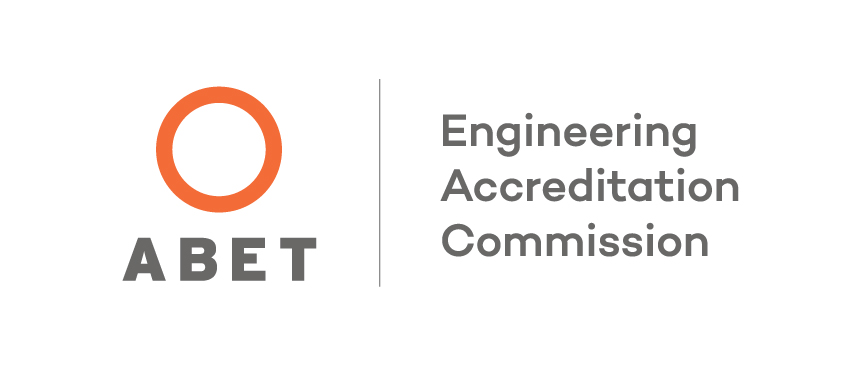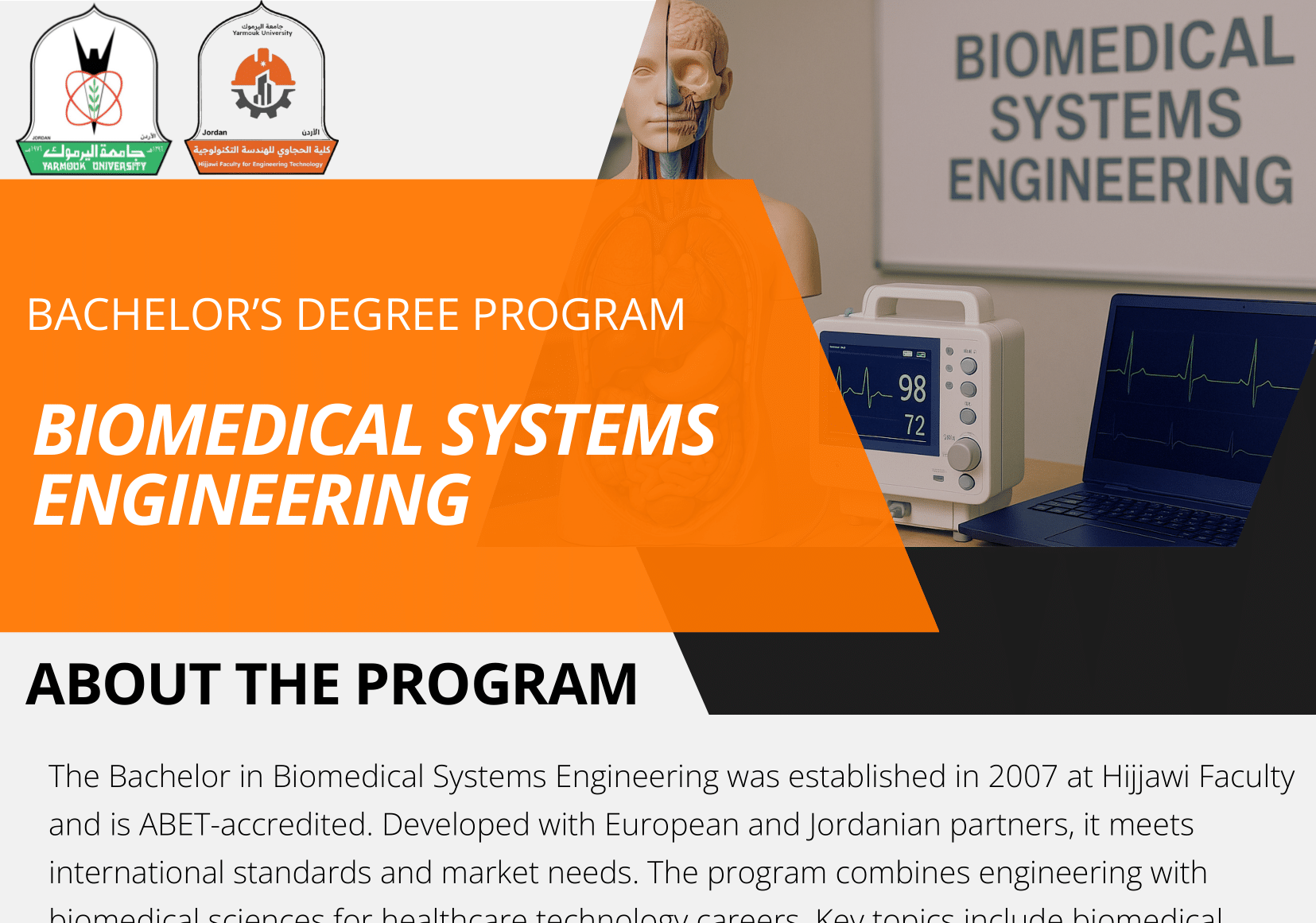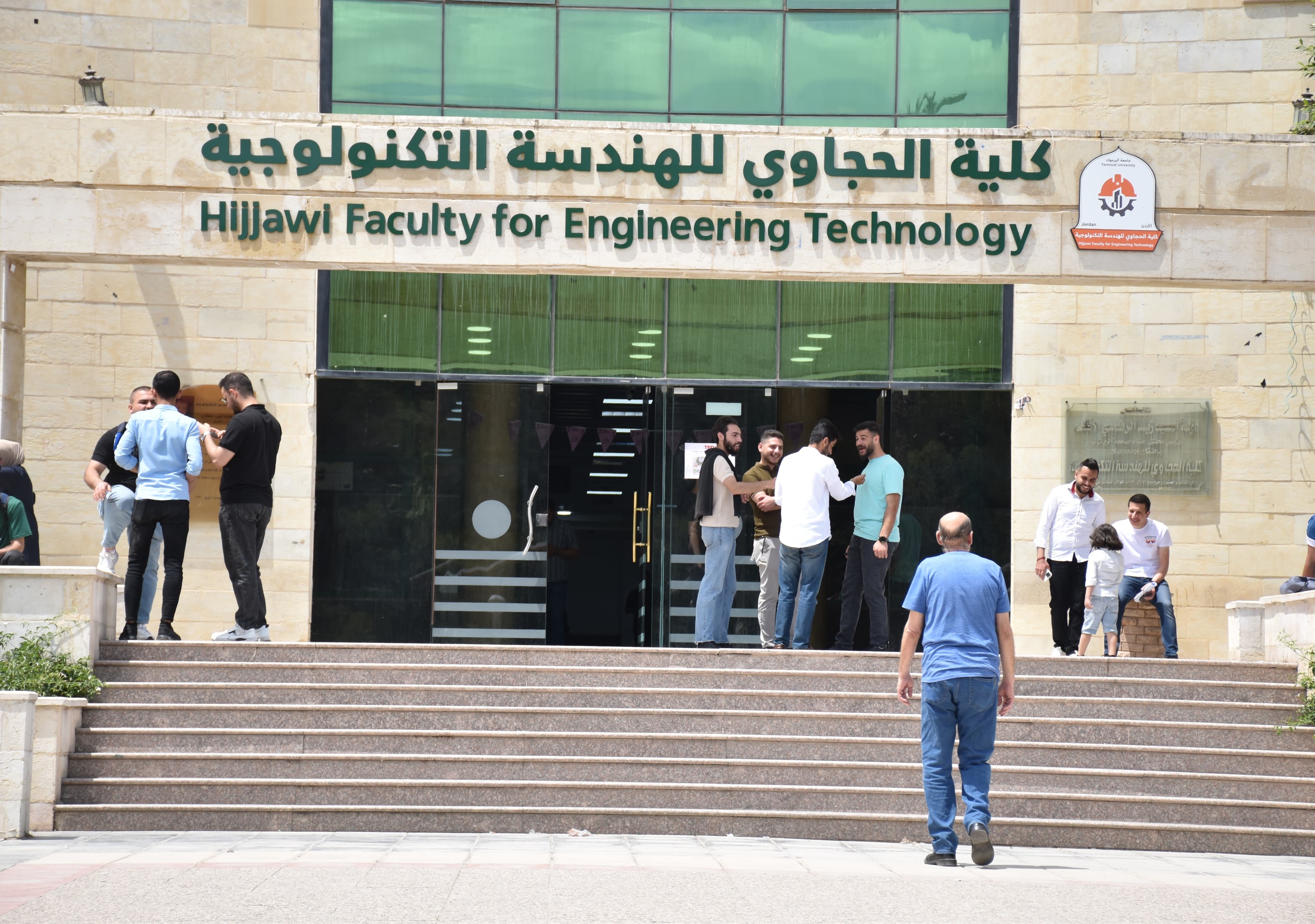Program Department and Chair
For inquiries or further information, please contact:
Email: medical.dept@yu.edu.jo
Phone: +962 2 721 1111 ext. 4551
Eng. Sami Almashaqbeh
Chair, Biomedical Systems and Informatics Engineering Department
Instructor, Biomedical Systems Engineering
sami.m@yu.edu.jo
+962 2 721 1111 ext. 4551
About the Program
The Bachelor in Biomedical Systems Engineering degree program at the Hijjawi Faculty for Engineering Technology, Yarmouk University, was established in 2007 with the support of the European Union / Tempus Program. The program is accredited by the Engineering Accreditation Commission of ABET, https://www.abet.org, under the General Criteria and the Bioengineering, Biomedical Engineering Program Criteria.
Developed in cooperation with European and Jordanian institutions, the curriculum meets international standards and market demands. It blends engineering and biomedical sciences to prepare students for careers in healthcare technology and innovation. The program places strong emphasis on interdisciplinary learning, integrating principles from biology, medicine, and engineering.
The program covers biomedical instrumentation, signal processing, medical electronics, imaging, biomechanics, biomaterials, and bioinformatics. Students complete a two-term graduation project and a four-month full-time practical training (six credit hours) in hospitals, research centers, or industry, gaining valuable hands-on experience.
Graduates are equipped for careers in biomedical engineering, clinical technology, or advanced studies, with strong technical foundations and applied skills.
Program Educational Objectives (PEOs)
Within a few years after graduation:
Enrollment Statistics
Study Plan
The study plan of the Bachelor in Biomedical Systems Engineering degree program consists of 167 credit hours, covering foundational and advanced topics in biomedical instrumentation, signal processing, medical electronics, biomechanics, biomaterials, medical imaging, physiology, and bioinformatics. The curriculum combines academic coursework with practical lab training to develop both theoretical understanding and hands-on skills.
Students engage in laboratory work in areas such as medical electronics, signal processing, imaging systems, and computational biology, ensuring real-world application of biomedical concepts. The program also includes four career development courses to build professional and soft skills throughout the academic journey.
A two-term graduation project allows students to address real biomedical challenges, while a mandatory four-month full-time field training (six credit hours) in hospitals, research institutions, or biomedical companies offers valuable industry experience.
Students who earn recognized international certifications in relevant subjects may waive up to one elective course. Foreign language courses are also included to strengthen global communication and expand international opportunities.
This interdisciplinary curriculum equips graduates with the knowledge, technical skills, and practical experience needed to thrive in the evolving field of biomedical engineering.
Career Opportunities
-
Hospitals and healthcare institutions
-
Medical device manufacturing companies
-
Biomedical research and development centers
-
Healthcare informatics and IT companies
-
Regulatory agencies and health technology assessment bodies
-
Academic and clinical research institutions
Industrial Advisory Board
Awesome Engineering Technology Program
Learn more about the Bachelor in Biomedical Systems Engineering degree program by exploring the materials provided here — and discover how it combines engineering, healthcare, and technology to prepare students for impactful careers in the biomedical field.





